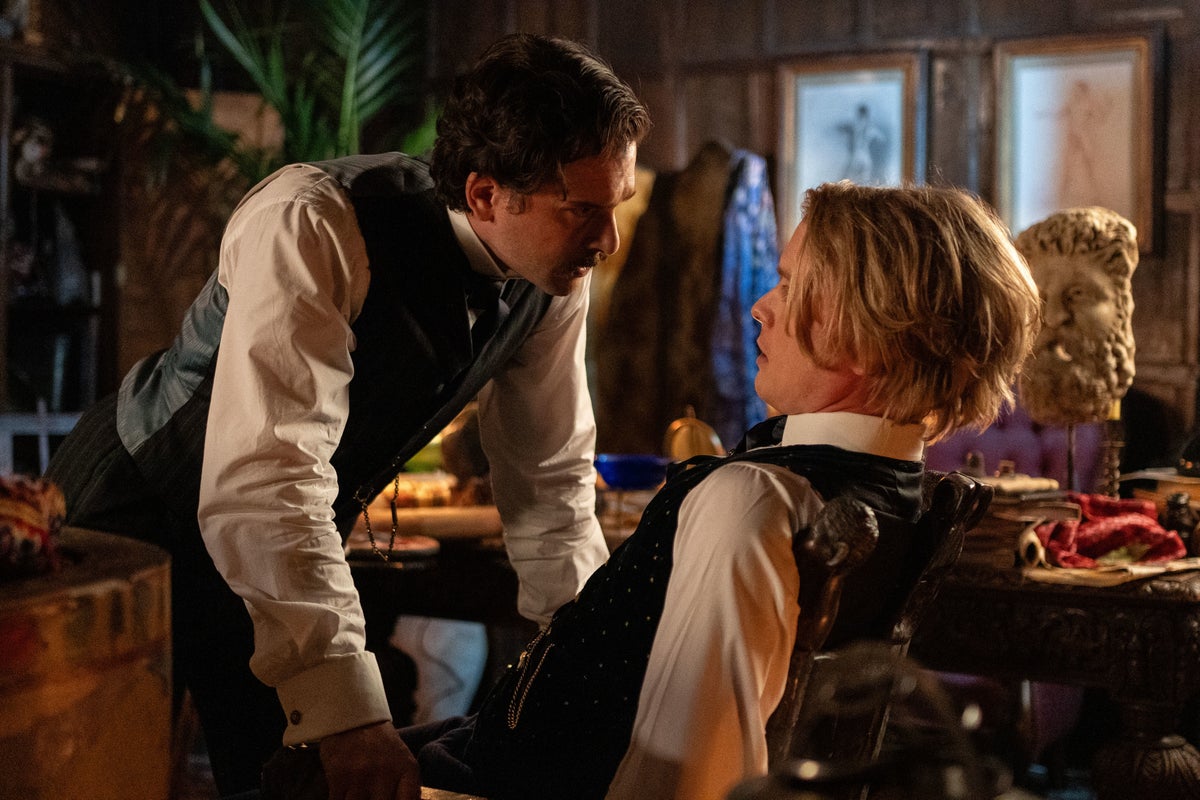
The BBC Ghost Story for Christmas is back – and what a wonderful, traditional gem it is. It’s an annual series of one-offs that began in the 1970s, and in more recent times has been revived by the creative force that is Mark Gatiss (overdue for his knighthood, I should say). Hugely original in his own right (and League of Gentlemen holds up well even now), he’s a sort of one-man artisanal renovation works for neglected national treasures, helping to reboot Randall & Hopkirk (Deceased), Doctor Who and the Sherlock Holmes adventures, as well as the seasonal ghost stories, which he writes and directs.
This BBC Two dramatisation of Lot No 249, an Arthur Conan Doyle short story, is as fine a half-hour of viewing as any – the wit, attention to detail and the nuance in the dialogue make it a rich experience to watch. Conan Doyle’s tale, with a few amusing tweaks, is a simple one. In late Victorian times, at the fictional Old College, Oxford, an unnerving if not sinister student Edward Bellingham (played with just the right dose of arrogance by the fabulous Freddie Fox), is obsessed with the fashionable craze of the day – Egyptology. So much so that he keeps various creepy pharaonic artefacts in his room, including a mummy. This poor old thing has no name, and so is called Lot No 249, which is what the auction house had labelled him as.
Some of Bellingham’s students, however, come to know Lot No 249 as their killer, the superannuated bag of bones creeping up on them unawares and inviting them to join him in the realm of the undead. Or, at least we, or they, think that’s what’s going on – because Gatiss’s skilful direction always leaves us in some doubt about what is really happening.
If – and it pleasingly remains as if – Bellingham is the supernaturally empowered villain of the piece, somehow controlling or collaborating with his mummified mate, then a young medical student, the brave and gentlemanly Abercrombie Smith (Kit Harington deploying some smouldering indignation at the evil in his midst) is the hero. Smith doesn’t, to be honest, do that good a job of restraining the monster, but he certainly puts Bellingham in his place with adept use of his revolver.
Necromancy is a tricky business, whether in “real life”, literature or when represented in our modern technologies, and can easily descend into bathos. Gatiss’s work doesn’t fall into any of the usual traps. The mummy, for example, is only ever seen as a wizened close-up face or as a shadowy hulk loping in dark cloisters, and not in the stereotypical form of wandering around moaning with his arms stuck straight out. It’s all very dark and Gothic, but never so much that you can’t see what’s going on, and the modern curse of mumbled dialogue is absent.
Lot No 249 thus avoids self-parody, even when Gatiss can’t resist, quite gratuitously, introducing the character of a prototype Sherlock Holmes into the story (not there in the Conan Doyle original), with Holmes on the lookout for a doctor to help him with a new investigatory agency he’s setting up, with suitable accommodation already identified on Baker Street, London. Smith turns down the invitation but, well, let’s just say he might have been better off if that famous series of detective stories had featured a Dr Smith rather than a Dr Watson assisting Holmes. It’s obviously all a bit silly, but Gatiss makes the old story quite believably silly. I may not believe in ghosts, but I am an avid believer in Mr Gatiss, and the BBC should be too.







